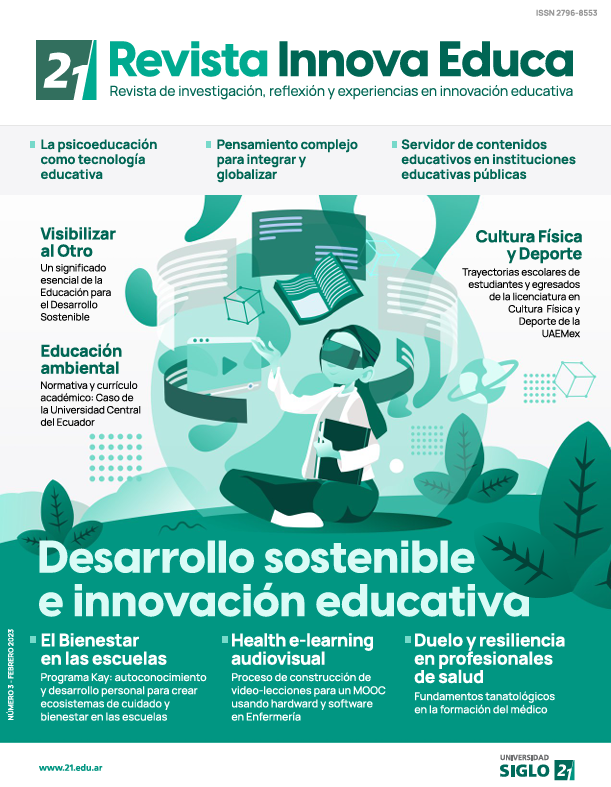Learning to make the Other visible, an essential meaning of Education for Sustainable Development

Abstract
Problem: During the post-pandemic period, different authors have considered a requirement for the transformation of education, the design of a techno-pedagogical methodology for the construction of innovative virtual learning resources. Objective: to develop techno-pedagogical skills (CTP) for the design of a virtual classroom in Moodle. Method: A mixed methods design is assumed. A nonprobabilistic sample of n = 177 subjects was used. Two instruments were applied: (a) an Analytical Rubric, administered by the teacher and (b) a Questionnaire self-administered by the participants. The data was analyzed by using statistics and the Content Analysis technique. Results: (a) 98% of participants achieved all planned CTP; (b) 90% considered that the course had a high level of quality; and (c) this learning experience has been considered by the participants as highly enriching and rewarding. Conclusion: The development of CTP in the design of virtual classrooms is possible when the approach of the social construction of learning and the method of learning by doing and reflecting on action are used.
Keywords
Sustainability ethics (ES), Education for sustainable development (ESD), Common good, Otherness, Lived experience
Author Biography
Damelis Cermeño
Estudios de Postgrado: Doctora en Educación (Ph.D). Línea Educación para el Desarrollo Sustentable. Universidad Católica Andrés Bello. Caracas, Venezuela (2021). Especialista en Ciencias Administrativas- Mención Finanzas. Universidad Central de Venezuela (1991). Estudios de Pregrado: Ingeniero Industrial. Universidad de Oriente (1977)
Auditor Interno y Auditor Líder en Sistemas de Gestión de Calidad ISO 9001:2015, Ambiente ISO 14001:2015 y Directrices para la auditoría de sistemas de gestión ISO 19011:2018. 19011:2002. ISO 17025_2017 Laboratorios de Ensayo y Calibración Certificados por Bureau Veritas y Fondonorma. Consultora en productividad de talento humano, Coach ontológico y organizacional.
Universidad Católica Andrés Bello. Extensión Guayana.
María Teresa Sánchez Reyes
Maestra. venezolana. residenciada en Ciudad Guayana, estado Bolívar (al sur de Venezuela, 620 kilómetros de distancia de la ciudad de Caracas). Profesora universitaria en la Universidad Católica Andrés Bello, Extensión Guayana. Interesada en temáticas de Andragogía Social. Pedagogía Social. Incidencia y transformación social.
